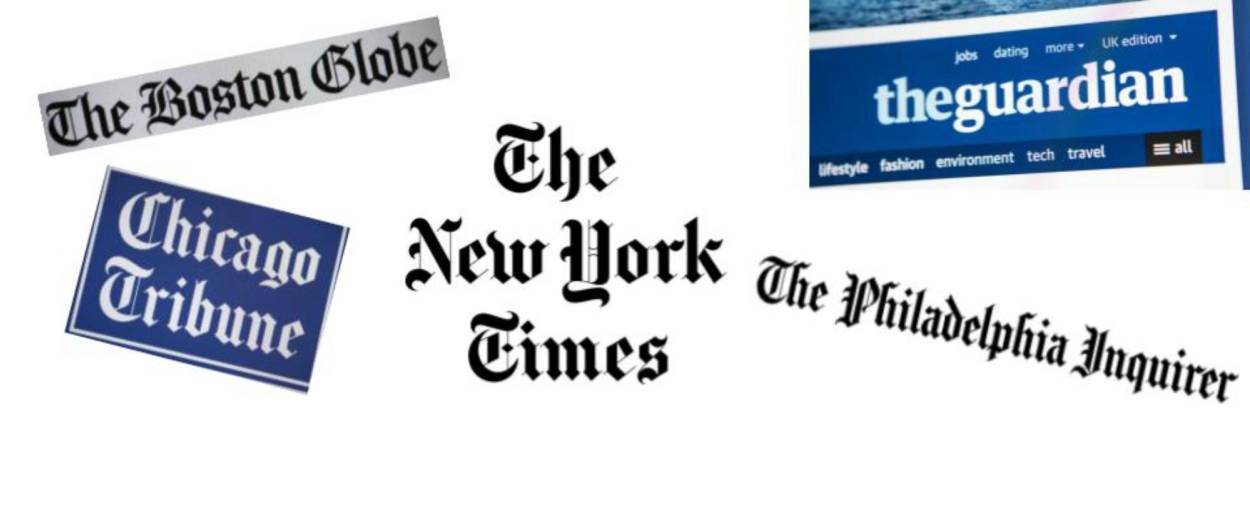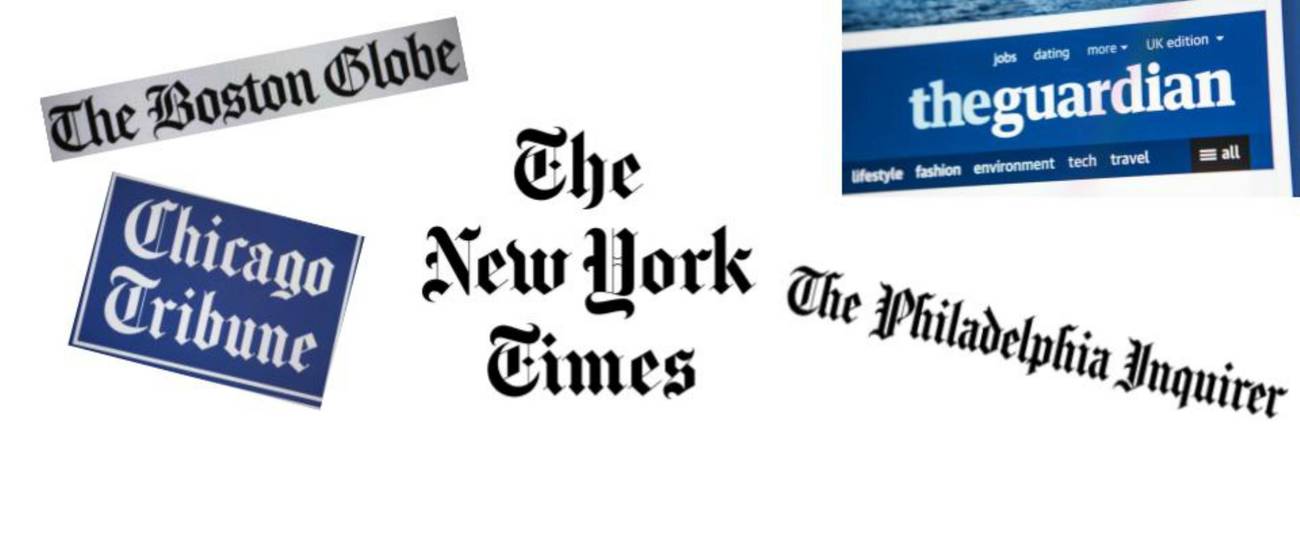The Press Misses the Point Again
Donald Trump isn’t hurting the press. Google and Facebook are.




Today more than 350 papers and counting join forces in a coordinated pushback against President Donald Trump. It started last week when The Boston Globe sent a letter to papers across the country encouraging them to join in publishing editorials “on August 16 on the dangers of the administration’s assault on the press.” Is this a brave act of resistance, beleaguered members of the newspaper guild joining together to say “I am Spartacus!” in defiance of tyranny? No chance.
This is the latest chapter in the press’ self-styled anti-Trump “resistance” narrative, in which a solid wall of journalists all say roughly the same thing about a convenient enemy to obscure more than two decades of the media’s own massive failures—financial and journalistic.
OK, Trump’s calling the press the “enemy of the people” is ugly—even for the no-holds-barred battle royale that the president has enjoyed with the media (“… and in this corner, Jiiiiim Acosta!”) since the New York Post’s Page Six staple made his famous escalator descent more than three years ago.
But the fact that the same journalists were unable or unwilling to raise their voices in unison when the Obama administration put their colleagues under surveillance, and used the Espionage Act to prosecute sources, suggests that the issue isn’t Trump’s unique hostility toward the press.
Whether the media’s activist stance is good for journalism’s bottom line remains an open question. Probably not. And given the sinking fortunes of media giants like Conde Nast, the media’s financial situation appears hopeless.
Why, consider the Boston Globe. In 1992 the New York Times bought the Globe for $1.1 billion, the highest price ever paid for a newspaper. In 2013, the Times sold it for $70 million. That’s a 93 percent loss over 20 years. What happened?
Corporate mismanagement is partly to blame. With the rise of the internet, the Times spent nearly a decade incapable of deciding whether to charge for news or give it away for free. The hope was that digital advertising would eventually make up for the calamitous decline in print advertising. The result was that media companies, spearheaded by the industry-leading Times, devalued their product—information.
Worse was that when someone did figure out how to make money from media online, it wasn’t the trusted news sources, it was social media.
Newcomers like Facebook and Google had a huge advantage over the prestige press. Not only did they not have to pay their content providers, they were also exempt from press liabilities and responsibilities. Tech-optimists like Ron Wyden, then-congressman from Oregon and now senator, wrote it into the law.
According to section 230 of the 1996 Communications Decency Act, “No provider or user of an interactive computer service shall be treated as the publisher or speaker of any information provided by another information content provider.”
The point of the Wyden amendment was to protect providers from being sued every time someone objected to a post. Otherwise, they feared, America’s great internet adventure would be strangled in its crib.
Wyden and other mid-’90s tech-utopians can hardly be faulted for not foreseeing that Mark Zuckerberg’s interactive photo album would become the world’s largest and most influential publisher, worth nearly a hundred times more than the New York Times. But journalists who over the last 20 years have watched their elders then their peers get cashiered in round after round of layoffs should know the score by now.
If the American press actually cared about the collapse of the press and the direct danger that poses to the health of our democracy, they would coordinate editorials explaining how digital giants like Google, Facebook and Twitter gutted their business, and turned them into providers of free content for social media platforms owned by tech oligarchs.
That the same corporations controlling our personal data and are now doing massive business with the intelligence and defense communities is an even more dire threat to our democracy. It raises the very real specter of information monopolies controlled by a combination of tech executives and unelected bureaucrats, who can shape public opinion and censor unwelcome thought through all-embracing algorithms. With that power they could track and defame dissenters from any official narrative through invasive 24-hour surveillance.
Why isn’t the press “resisting” the forces that truly endanger our free speech while threatening its own means of production? The legacy media blew a huge opportunity last week after Facebook and others “deplatformed” Alex Jones.
Conservatives and free speech activists argued that Jones’ first amendment rights were violated, warning that this was simply the first step in a more comprehensive regime of censorship. Nonsense, countered many on the left. Private enterprise is under no obligation to provide Jones or anyone with a platform.
That’s true. But if you’re going to make editorial choices—for instance, by excising Jones’ conspiracy theories while choosing to disseminate others—you should not enjoy the exemptions allowed by section 230.
What we call the “press” bears little resemblance to the institution that became a kind of unelected branch of government in 20th-century America. For the most part, it now acts as an extension of the seamy world of Washington, D.C. operatives-for-hire and partisan campaign propaganda.
The future of the press is bleak. Those who were once journalists are poised to vie for the favor of the social media giants, political operatives, and intelligence and defense bureaucrats whose decisions will shape our polity. Oh yes, Facebook, you did exactly the right thing by sending Alex Jones down the memory hole—and please don’t let me be next. Who were once journalists are now courtiers, a retinue chosen to defend, and obscure, the interests of tech oligarchs at the expense of the American public.
Or never mind, have it your way: Brave warriors of print and broadcast media. Dig deeper trenches—Resist!
Lee Smith is the author of The Permanent Coup: How Enemies Foreign and Domestic Targeted the American President (2020).